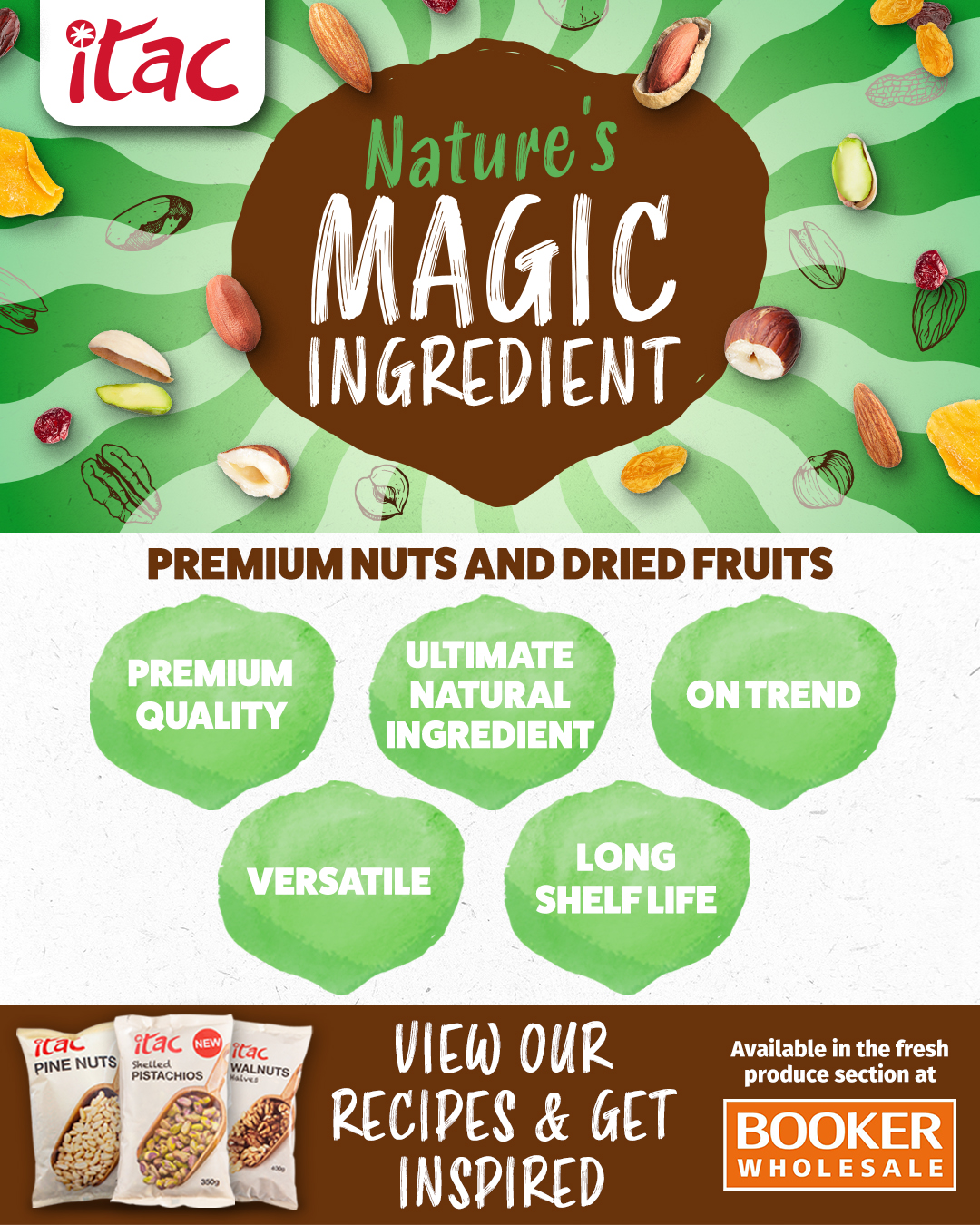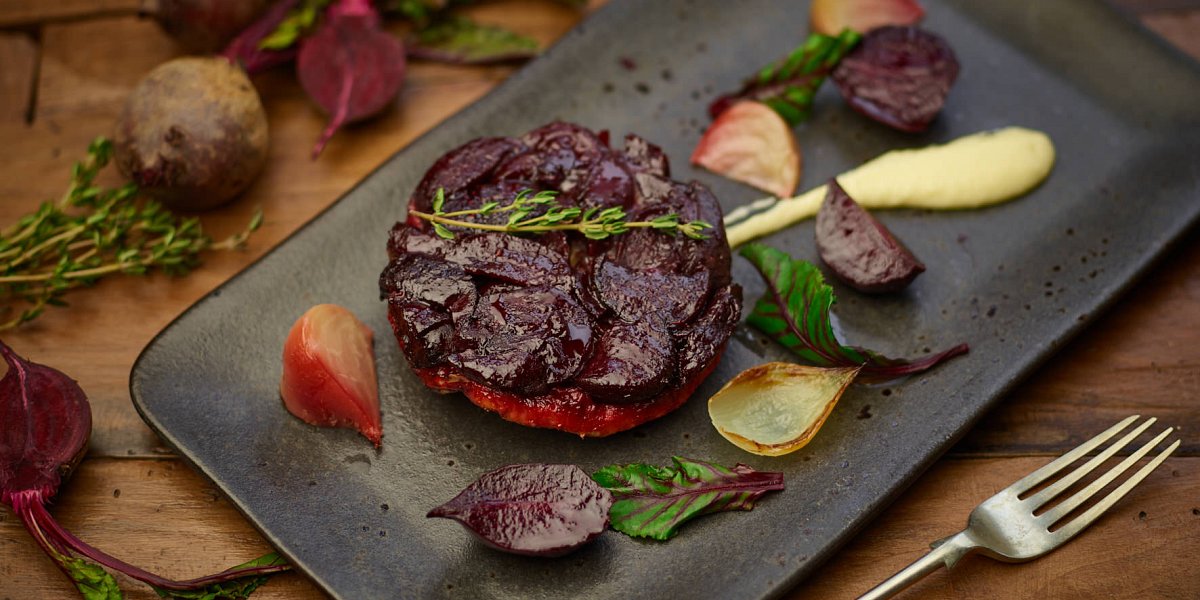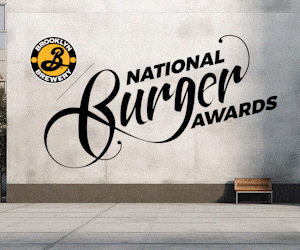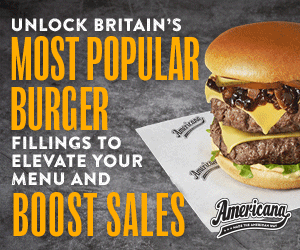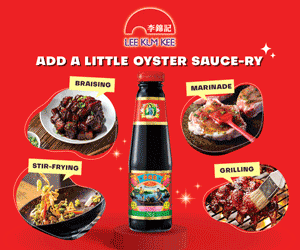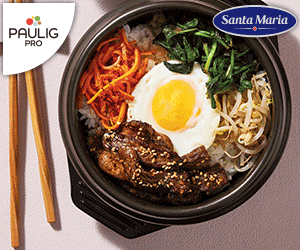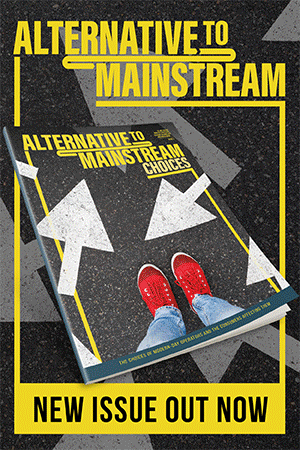Feature: Viva Las Vegan!

Meat-free allies: it's time to stand up and be counted, for the plant-based revolution is here
Veganism is transforming the hospitality industry. The un-meltable cheese, bland ‘rice cream’ and brown-powdered soymilk days of old are almost long forgotten, making way for a plant-based uprising that’s rich in both flavour and variety.
While the carnivores among us may have wished it a passing fad, the vegan and veggie movement has gained monumental traction in recent years. In 1994, World Vegan Month (which is celebrated each November) was established to commemorate the progression of the vegan ideology. And clearly it worked, since, two decades later, the annual Veganuary challenge was founded by husband-and-wife team Jane Land and Matthew Glover. The campaign has been a roaring success since it began in 2014. Last year, the initiative saw a record 582,000 sign-ups from people all over the world – 85% of whom claimed they intended to permanently half their consumption of animal products.
Plant-based is no 'missed steak'
Veganism and vegetarianism are two of the most impactful consumer trends affecting the dining out market today – and that makes them big business for operators and suppliers alike. According to a report by The Vegan Society (TVS), 66% of customers are actively choosing, or open to choosing, meat-free alternative options.
“Adding appealing vegan menu options can open your outlet up to a larger range of customers,” says Samantha Winsor, brand manager at leading international baking group Lantmännen Unibake Americana. Her colleague and brand ambassador, Christian Stevenson, aka ‘DJ BBQ’, agrees, saying: “Plant-based cooking is where it’s at. The growth rate is exponential and not slowing down.”
Not only is plant-based ‘where it’s at’, but it’s fast becoming a necessity, since demand for meat-based dishes and products is steadily on the decline. Some 13m Brits (26%) are looking to become vegan, vegetarian or pescatarian by the end of 2021, according to data from Finder. If those who plan to defeat the meat follow through with this goal, around 7% of the UK population would be adhering to a vegan diet.
“Even if people don’t completely go vegan, more meat-eaters are opting for vegan meals when eating out and at home,” says Peter Towler, owner of West Midlands-based Mad O’Rourke’s Pie Factory.
In a bold move, Mad O’Rourke’s decided to remove vegetarian options from their menu entirely and replace them with vegan alternatives. “We know from experience that vegetarians are happy to also eat vegan – that’s the trend we see,” Towler explains.
Lockdown learnings
The ups and downs of the pandemic have taught us many things, but even the most experienced scientist or anthropologist could never have foreseen the effect it would have on the vegan movement. A study by TVS, published last May, revealed that more than half (54%) of participants in a sample of 1,000 purchased meat alternatives for the first time during lockdown; 78% of whom claimed they would continue to buy these in the future.
Louisianna Waring, senior insight and commercial policy officer for TVS, says of the findings: “It’s no surprise that the pandemic has inspired so many consumers to make the switch to plant-based alternatives and adopt a more planet-friendly diet. Covid-19 has certainly made people think twice about what they’re eating and where it’s coming from. This is highlighted by the large number of people cutting down on animal products because of their own health concerns.”
But these aren’t the only things driving consumers to follow a vegan lifestyle; the animal welfare and environmental concerns associated with eating meat are also chief among them. A major recent study published in Nature Food found that global food production is responsible for a third of all planet-heating gases emitted by human activity – with meat accounting for a staggering 60% of damaging greenhouse gases.
“Restaurants recognise the power of plant-based foods to reflect on their brand either because they are an ardent supporter of them and the reasons consumers demand them, or because they are not,” says Brady Collins, co-CEO of Arley Foods. “A restaurant that provides a great choice of plant-based food is aligning its brand with their customers’ beliefs that plant-based food is better for their health and the environment. Both these drivers are important for restaurants to recognise and act upon without delay.”
The reason that veganism is growing so rapidly is because the fast-ascending consumer awareness is simultaneously heightening demand, spurring a greater range of high-quality products to enter the market. Collins argues that customers, medical professionals and most governments generally accept that reducing meat and dairy intake is beneficial to health and more sustainable, making it increasingly difficult to question the validity of the vegan philosophy.
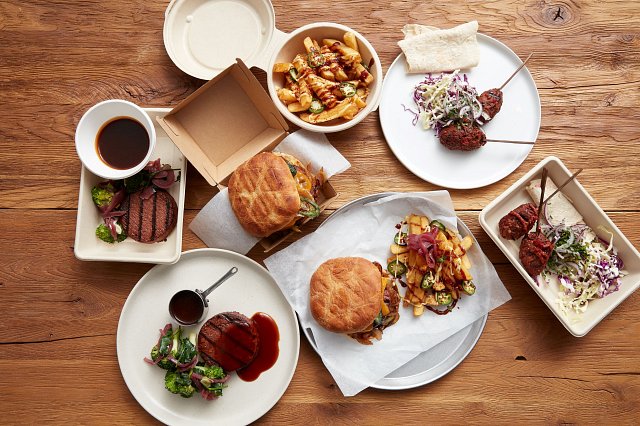
Fast food chain LEON, which has approximately 70 restaurants across the country, has acknowledged an increase in environmental awareness among customers. “It’s less of a trend and more of a positive step in the right direction,” says Erica Molyneaux, the chain’s head of food. “Our menu has performed well because we have always been plant-forward. LEON also celebrates local and seasonal; we choose more plants, better meat and we source responsibly.”
“Fifteen years ago, I wouldn’t have even put salad on a plate in my restaurant, but diners’ eating habits and demands have changed. People are more health conscious now and are increasingly concerned about the sustainability of the food they are eating,” adds Towler of Mad O’Rourkes.
Winning taste buds and hearts
The Diffusion of Innovation theory explains what makes things trend. Like many things in life, it starts with innovators – the ones who are responsible for bringing ideas to life. Early adopters can then step in and make the idea a reality. Then, in comes the early majority – fans or followers of early adopters who deliver the concept to the masses. Eager not to jump on the wagon too quickly, the late majority sit back and observe before deeming it safe to join in. Laggards are the last to climb on board, at which stage the trend will either die down or establish itself as a norm – a status that veganism seems to be hurtling towards.
“Restaurant menus have been filling out with more exciting and innovative plant-based options than anyone thought possible,” says Lynn Little, head of food at Nestle Professional, whose brands include Garden Gourmet. “If there ever was a time to sharpen your selection of flexitarian-friendly menu items, it’s now. Plant-based eating is here to stay and it needs to find a permanent home on your menu.”
Keep it simple, to begin with, and start by offering vegan alternatives to existing dishes you offer. This is much more inviting than just tagging one or two vegan options onto a predominantly meat-based menu. “For foodservice operators, the key is to make sure that the vegan and vegetarian options on their menu are every bit as familiar, creative or indulgent as the meat ones,” explains Lee Tynan, food development director of Creative Foods
Take the humble burger, for example – a staple in almost every modern eatery, from casual to premium. The addition of a vegan option is an absolute must, with a recent tastecard survey confirming it to be the nation’s second most popular vegan dish (behind chickpea curry, 26% vs 19%).
“A veggie or vegan burger says a lot about a restaurant,” explains Stevenson. “They aren’t easy and can often be dry and flavourless. But if you can do a decent vegan option then you’re ticking all the boxes. Many of these alternatives can also be prepared and served quickly.” The brand ambassador suggests switching meat burgers out for beans and pulses, delivering protein alongside great taste. Stevenson emphasises: “It’s all about maximising the flavours with herbs and spices.”
As a British institution, meat-free pies are well-received among vegan diners. Recognising the growing appetite for plant-based, meat wholesaler Midlands Chilled Foods (MCF) recently launched their own vegan range – for which demand has increased by an incredible 300% in just two years. “Our Chilli Non Carne pie is a best-seller and the vegan Steak & Ale is growing exponentially,” says Craig Ward, commercial director at MCF. “The well-publicised popularity of plant-based sausage rolls has converted to the hospitality sector, with operators adding value and upgrading the offering to claim a slice of the trend.”
Go the extra mile
However, the simple swap for meat replacements is not enough for some. While they may be open to all things plant-based, customers are unwilling to compromise on taste – and substitutes can sometimes lack the imagination or originality that makes these foodies tick. “A big trend has been easy meat replacements, such as a veggie burger or vegan sausage roll, which can be great but we don’t think goes far enough,” says Towler. “Restaurant owners should be more creative with their menu choices.”
Natalie Pace, co-founder of London-based vegan restaurant VetoMeato, believes incorporating global flavours into menus is a simple yet effective way to ‘spice things up’. “Especially from cuisines that traditionally have a more plant-based approach to cooking – such as food from India, the Middle East or parts of Southeast Asia,” says Pace. “Zatar and dukkah are two spices that have seen their popularity rise for this reason.”
Dessert presents a great opportunity to have fun with vegan cuisine. Belgian chocolate brand Callebaut recently identified six core macro trends to give restaurateurs insight into the foods and ingredients that best cater to consumer demands. The flavours they specified are: hot red (spicy), magic purple (berries and flora), sweet caramel (nostalgic, including chocolate), earthy brown (nuts, spices and roots), healthy green (plant-based and fresh tastes), and mellow yellow (citrus and tropical).
Just last year, Callebaut’s Dessert Report revealed that 15% of today’s consumers would be more likely to order a pudding that’s vegan, while 69% agreed they would be neither more or less likely to order a vegan sweet treat, highlighting that these options appeal to the majority of diners.
“The great thing about our vegan desserts is that they are all-inclusive – they are delightfully indulgent and can be enjoyed by everyone at the table,” says Anna Sentance, gourmet marketing manager at Callebaut UK. “Some of our new vegan desserts include our Chocolate Beetroot Cake and Vegan Blondies – suitable for both gluten-free and vegan diets. Over the next five years, the global chocolate market is forecast to grow sales on an average of 4.4% a year, so bakers should incorporate chocolate into their bakes to capitalise on this growth.”

Taking note of the chocolate craze, Central Foods – a company that stocks a vegan range comprising more than 25% of its products – offers the luxurious Menuserve chocolate and cherry dessert that any confectionery fanatic would find impossible to resist. But again, variety is key – so if chocolate don’t ‘float your boat’, the Menuserve pumpkin or baked New York-style desserts most definitely will!
Maximising Veganuary
The crisp mornings and long nights of January are upon us, making now the ideal time to refine and perfect your plant-based offering to mark the Veganuary challenge. Failure to acknowledge this key event in the culinary calendar risks your business losing out to competitors that have. “Veganuary is a shop window for restaurants to showcase what they can do and for consumers to engage with plant-based without the perceived permanence of becoming vegan or vegetarian,” explains Collins of Arley Foods. “Thinking that Veganuary is for vegans is a mistake. Veganuary is an opportunity for meat and dairy consumers to dip their toe into plant-based foods. If the food producers and restaurants provide a great experience, the changes made by consumers can become more frequent and, hopefully, permanent.”
If you’re wondering where to start, Julie Cleihne, founder of Sustainable Kitchen Consultants and Garden Gourmet’s new operator toolkit partner, suggests a focus on the language used on your menu. “Menu and specials board descriptions should be evocative and eye-catching, and above all help entice the diner into ordering,” says Cleihne. “Too often plant-based dish descriptions focus on what a dish doesn’t include, rather than what it does. Focus on flavours, textures and what makes it a great alternative.”
Bigger brands such as LEON view Veganuary as a chance to promote the accessibility of a vegan diet. Rather than it specifically being about veganism, the restaurant sees it a chance to showcase its range of “plant-forward” dishes. “A significant amount of our menu is vegan and vegetarian and the focus is on those dishes being as tasty as they can be,” says Molyneaux. “For us, it’s about providing our customers with the opportunity to make more mindful decisions about what they are eating in line with our ‘eat well, live well’ mission.
“For 2022, LEON will be continuing to celebrate the power of plants and encouraging a plant-rich diet through both our restaurant and LEON at home offering.”
Why not make food a silver lining of the chilly winter season? Following weeks of festive feasts, many people will be feeling health conscious as we enter the new year, and Veganuary is an opportunity to explore more notorious plant-based grains, as well as meat and dairy alternatives. “January is great time for hearty broths, delicious seasonal vegetables and comforting tray bakes using wonderful local produce,” says Alex Head, founder of South London café and catering company Social Pantry. “Experiment with new flavours and try to stay clear of the typical vegan dishes that people are already very familiar with.”
Whether you’re a plant-based pioneer, a meat-free mogul or even a full-time carnivorous consumer, accept that the vegan revolution is here to stay and your venue needs to embrace it. How you choose to do that is entirely up to you – but stand beside the movement’s trailblazers and ensure the message is heard: veganism could be the answer to not only the health of our people, but also the health of our planet. Is there any better cause you could get behind than that?


